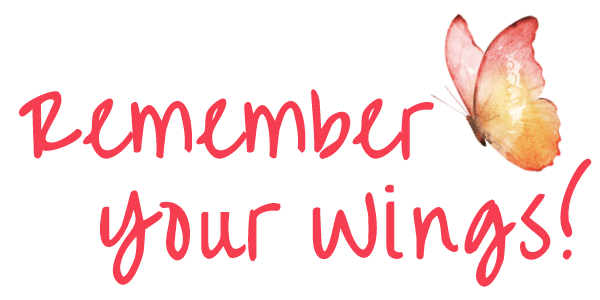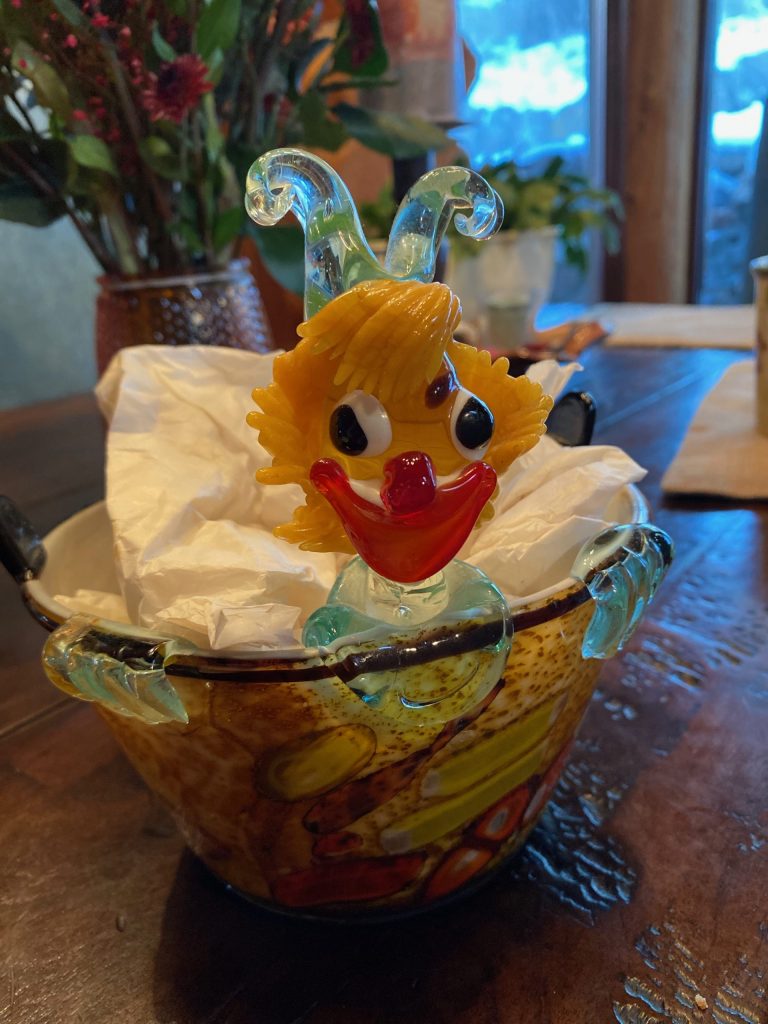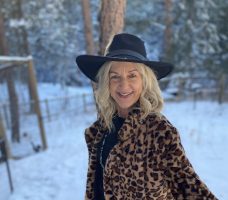I found this curious relic when cleaning out my shed over the weekend. I believe it was my grandmother’s. I have no idea why I saved it.
Wondering about its story and whether I should keep it, I decided to text my grandmother’s only two living relatives other than myself–my mother and my brother. My mom said: “Are you sure it was hers? I don’t remember it.” My brother: “Yes, it was hers, but I have no idea what it is. Some sort of bad dream fruit bowl?”
We each have our own story about the bowl. To me, the piece may hold some hidden value. To my mom, it’s a blank slate because she doesn’t remember it. To my brother, it’s disturbing. Well, he’s right, it is kind of creepy (but it could be worth something!).
This says a lot to me about the role story plays in our lives. The stories we tell ourselves are up to us. We can write our own story! Think, for example, about the story of 2020. How many people have you heard say that 2020 has been the worst year ever? And maybe you feel that way. I don’t want to minimize the pain and suffering many of us have been feeling. I’ve certainly experienced my share of loss, grief, anger, sadness and fear this year, and you probably have too.
But if we stay mired in the story of misery, we lose the ability to write a happy ending. It has been my experience that the most trying times in my life have yielded the most growth. The year 2020 has been no different. This year, I’ve achieved a new level of self-sufficiency, connected more intimately with nature, formed a stronger bond with my previously troubled horse, examined my role and responsibility in systemic racism, honed my intuitive healing skills, “outed” myself as a writer, and had many deep, thought-provoking conversations with my 19-year-old daughter. Where has 2020 pushed you to grow?
One of the superpowers of stories is endurance. They can live for years–even for generations–becoming ingrained in our lives and our culture. I am fascinated by the new book, Cassandra, by Elizabeth Lesser, which explores how stories in the Bible, Greek myths and fairy tales present woman as the sinner, the corrupter, the evil one, the old hag, the person who is not to be believed. No wonder many of us have felt we have been in a fight since Day 1!
Given their survival capacity, isn’t it vital that we create the kind of stories we want to carry into the future? That brings me to the stories we tell ourselves about ourselves. We can’t possibly be in the best position to build a more peaceful, abundant and loving world if we do not know ourselves to be peaceful, abundant and loving. If our mind-voice is in the habit of constantly whispering words of failure and lack to us, we must use everything in our power to change the conversation. Simply noticing when this is happening is a good start.
A wise teacher once told me that the mind does not know the difference between you saying “I love you” to yourself or another person saying it to you. If that’s not an endorsement of the power of creating your own story, I don’t know what is!
What will be the end to the tale of my creepy clown bowl? Perhaps it can become a container for little affirmations like you are courageous, you are wise, you are loved. I can pull one out each day and use it as a prompt for writing the story of me. That’s more valuable than any money I might get for it, don’t you think?


